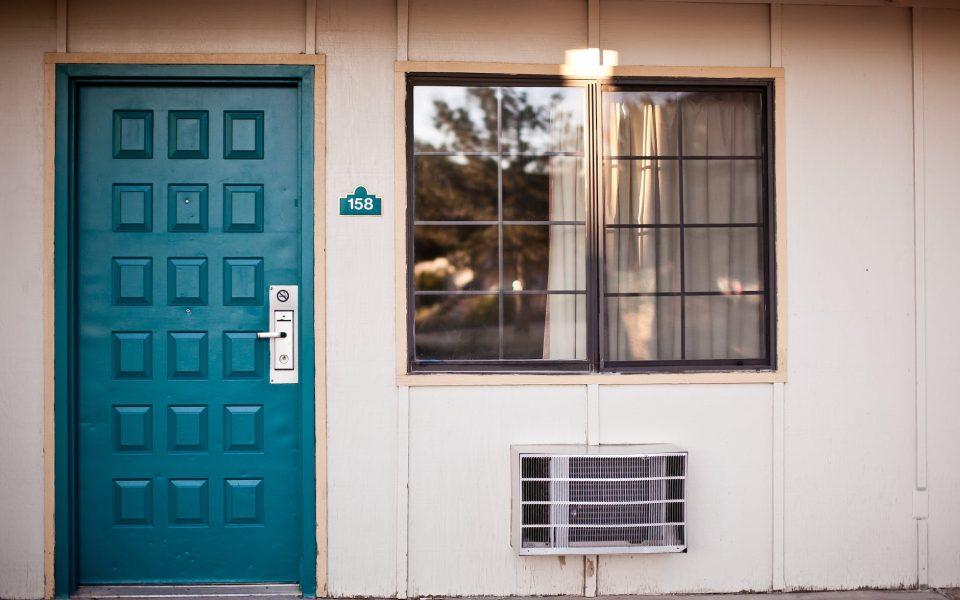This story was originally published by NC Policy Watch. By Rob Schofield.
Homelessness. It takes many forms in modern North Carolina – some familiar, some less so.
For several thousand families, it means double-bunking or “couch surfing” with friends or relatives for an extended period. For a tragic number, it means living in a vehicle or even camping out in tents, shanties, parking garages and downtown doorways, under highway overpasses, or on park benches.
Some people are able to access shelters made available by churches and nonprofits. In Raleigh this winter, thanks to the city’s maddening lack of any coherent plan, a trio of modest-sized religious congregations have struggled mightily to shelter scores of homeless people through what’s known as a “white flag” system, whereby a limited number of cots are made available after a certain hour on the nights the temperature falls below 35 degrees.
And then there’s another option of which most well-off Americans are probably only vaguely aware: lower-rung hotels and motels. For decades in our state and across the U.S., owners of these facilities – picture an aging and dogeared one- or two-story budget motel on a noisy highway – have found a profitable business model in which they rent housing of last resort to struggling families and individuals with no place else to go.
Across the state each year, thousands of children list these places as their home addresses in registering for school. Many are picked up and returned there each day by school buses.
Indeed, as Lisa Sorg of NC Policy Watch has documented in painful detail over the last several months in a damning series of exposés on North Carolina’s disastrously failed response to Hurricanes Matthew and Florence, scores of storm refugees have been billeted in these places for months or years.
Not surprisingly, the environment found in these locales is frequently grim, as people living on the edge struggle to survive for extended periods in facilities ill-designed for such a purpose.
And now sponsors of a proposal at the North Carolina General Assembly are looking to make things even tougher on these people by changing a 30-year-old law established by the state’s appellate courts.
The law stems from an incident that took place more than three decades ago on a cold Christmas Eve night in Union County, when the operator of a motel decided to evict all of the facility’s residents (along with their belongings) without warning – many of whom were otherwise homeless families.
As the former Legal Aid lawyer-turned-present-day-pastor who aided the displaced families noted in a letter to lawmakers when the issue arose in 2021, this remarkably cruel act helped lead the state courts to rule that persons residing in such places as their sole or primary residence are tenants entitled to the same (though still quite minimal) notice and process rights as people facing eviction from conventional apartments and houses.
Now, however, Republican state lawmakers want to end this protection. Under bills advancing in both the state House and Senate, the Appellate Court’s unanimous 1991 ruling in Baker v. Rushing would be overturned, and basic tenant rights would no longer apply to motel residents for the first 90 days they reside in the facility. Until that point, the motel operator would be free to evict anyone (along with their belongings) for just about any reason at any time without notice. This would be the case even where the facility has rented a room to someone with full knowledge that it will be their sole or primary residence for an extended or indefinite period (though thankfully, most hurricane refugees would likely be unaffected). Proposed amendments from Senate Democrats to merely soften and clarify the bill were tabled by Republicans before they could even receive a proper vote.
And this is just cruel and unfair.
Sponsors of the bill and the industry lobbyists behind it contend that their facilities need the right to treat people this way because they sometimes find themselves hosting dangerous occupants.
But, of course, this argument ignores that state law already: a) includes provisions to provide for expedited eviction of people accused of drug trafficking and other criminal acts; and b) permits immediate lockouts of scofflaw tourists and other troublemakers who are genuinely transient guests.
It also ignores the obvious fact that motel operators are under no obligation to rent to any stranger who shows up with cash for any length of time. They can require criminal record checks, credit histories and good references. Indeed, the use of such checks has been a tactic applied by landlords for centuries and makes especially good sense for facilities operating under this particular business model.
The bottom line: Two years ago, when legislators sent this same measure to his desk, Gov. Roy Cooper vetoed it saying:
This legislation is not the right way to ensure safety in hotels. It removes legal protections and allows unnecessary harm to vulnerable people, including families with children, who have turned to hotels and motels for housing in a time of need.”
In 2023, nothing has changed to merit any kind of different outcome.
Join the First Amendment Society, a membership that goes directly to funding TCB‘s newsroom.
We believe that reporting can save the world.
The TCB First Amendment Society recognizes the vital role of a free, unfettered press with a bundling of local experiences designed to build community, and unique engagements with our newsroom that will help you understand, and shape, local journalism’s critical role in uplifting the people in our cities.
All revenue goes directly into the newsroom as reporters’ salaries and freelance commissions.


Leave a Reply